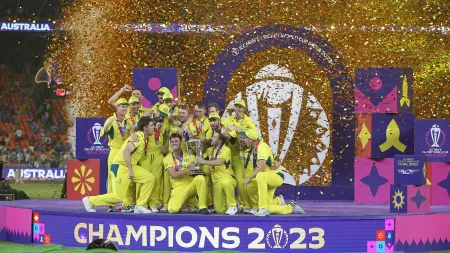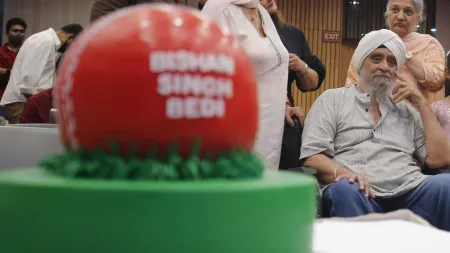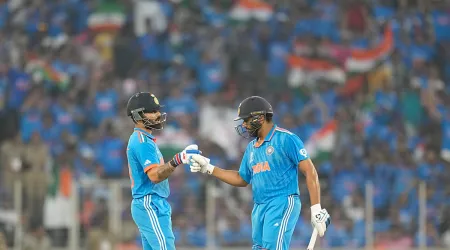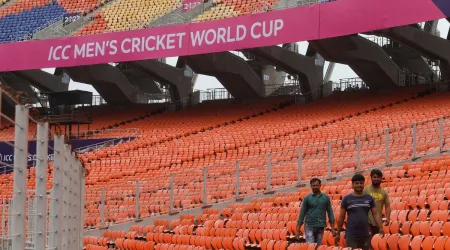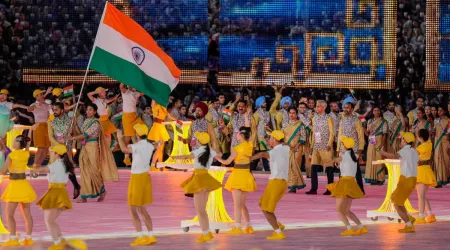- India
- International
We are at war in football sense…need all Indians: Stephen Constantine
After India’s loss to tiny Guam in WC qualifiers, coach Constantine believes poaching Indian players living abroad is the way forward.
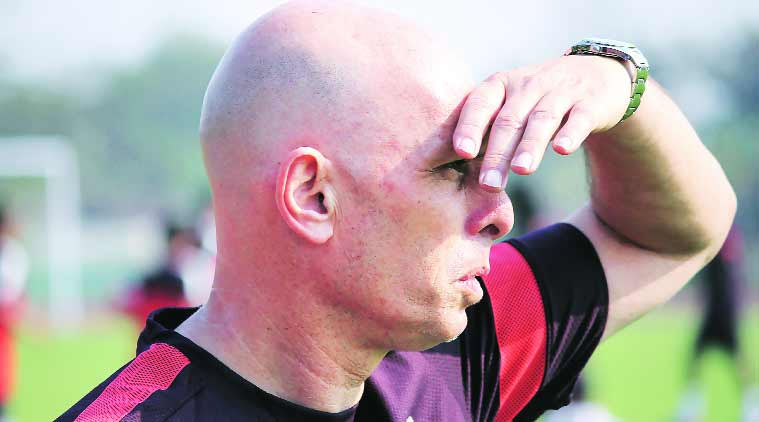 Constantine is planning to approach the sports ministry urging them to soften their stand on Indian expats.
Constantine is planning to approach the sports ministry urging them to soften their stand on Indian expats.
Claiming that the country is at ‘war in a football sense’, chief coach Stephen Constantine said it is imperative that India bloods expatriate players in the squad to stay competitive and be part of the bigger picture in Asia. The Englishman, who had tried including Indian-origin players during his first stint as India coach, feels the team is at a huge disadvantage in comparison to most other nations because of the law that makes players with dual nationalities ineligible for the national team.
The controversial government policy has come under the scanner once again following India’s embarrassing 2-1 away defeat to Guam last week in their 2018 World Cup and 2019 Asian Cup joint-qualifying match. Consequently, the All India Football Federation (AIFF) is planning to approach the sports ministry and urge them to soften their stand on the policy.
Asserting that the football world is ‘no more a level playing field’, Constantine, who had broached the issue with the AIFF much before the Guam match, said ‘it’s appropriate that the issue be handled by administrators although I am happy to support the cause in any way, shape or form.’
He, however, insisted ‘India requires all Indians’ to revive the fortunes of the national team. “It is very important to any nation that the expatriates have the feeling to come and fight for their own country. In this case we are asking our Indian football players to serve their country.
We are at war in a football sense and India requires all Indians, no matter where they are, to stand up for Indian football,” Constantine told The Indian Express.
‘Huge disadvantage’
The AIFF has been criticised for doing precious little to strengthen the I-League and develop the grassroots. With no one apart from goalkeeper Gurpreet Singh playing competitive football abroad, the Indian players have been unable to match the intensity of international football.

Constantine feels the country has taken some important steps but rued the fact that they are unable to poach Indian players who stay abroad.
“Many of our neighbouring countries have been using this FIFA regulation for some time and it has had a profound effect on the national team’s performances. Sadly for us, we are unable to do this and pay the price against teams who have some foreign based players, sometimes, comprising up to 90 percent of the squad,” he said.
“We can only work with what we have and while we have made some important strides forward, we are at a huge disadvantage in comparison to most other nations.”
The ‘disadvantage’ is apparent on the pitch. India, who held a superior head-to-head record against teams such as Palestine, Singapore and Pakistan to name a few, have been consistently troubled by them in the last two years.
The team’s drastic decline can also be attributed to a poor transition period under former coach Wim Koevermans and the federation’s inability to provide regular exposure to the national team (India played just two internationals in 2014).
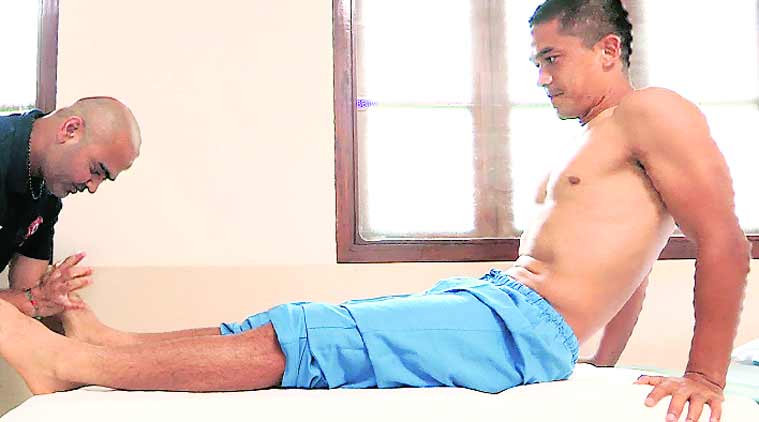 The AIFF, though, believes it is more because almost every other country has improved because they’ve used FIFA’s ‘heritage’ rule to their advantage. During his first term in India between 2002 and 2005, Constantine had invited a couple of Indian-origin players, Ebbie Kodiatu (USA) and Simran Singh (Denmark), but they could not make the grade.
The AIFF, though, believes it is more because almost every other country has improved because they’ve used FIFA’s ‘heritage’ rule to their advantage. During his first term in India between 2002 and 2005, Constantine had invited a couple of Indian-origin players, Ebbie Kodiatu (USA) and Simran Singh (Denmark), but they could not make the grade.
“I had spoken to Michael Chopra and even Harpal Singh to come over and represent the Indian national team. So the process has been on for sometime,” Constantine said.
After being appointed for a second term earlier this year, Constantine has handed national team debuts to 13 players in his first three matches. He asserted that it is important for local players to continue getting his support and opportunities but also added that those in best shape and condition to represent the country should also be considered.
“We have to look at the best players who are currently playing in good quality leagues around the world. I do not want to change the face of the Indian national team and call 11 foreign based players to wear the national jersey. It’s important that we support the locally based players, help them get better and give opportunities to all,” he said.
The former Rwanda coach added that if powerhouses like Spain can use this rule to bolster their team, India too should not hesitate. “If we want to be the part of the bigger picture of football in Asia, never mind the world, it’s imperative that we look at this.
Most other nations around the world are using this FIFA regulation to enhance their own national sides, the case in point being Diego Costa, presently playing for Spain amongst a whole lot of others. If the powerhouses in world football are using this regulation why shouldn’t we?”
‘Need more time’
Meanwhile, Constantine said five days were not enough to prepare the team for the opening two World Cup qualifying matches against Oman and Guam, which India lost by an identical 2-1 margin.
“We had a preparatory camp for around five days which is not enough, especially as lot of the players are young and inexperienced. It takes time to build the side and the more time I have with these players, the better the understanding on and off the pitch,” he said.
India will next take on heavyweights Iran on September 8 in Bangalore and ahead of the match against Asia’s highest-ranked side, Constantine said he would like a camp of two or three weeks to ensure his players adapt to the new environment and methodology.
NRIs: Not Required Indians
India’s defeat to Guam in the 2018 World Cup qualifiers has once again given rise to the debate over the sports ministry’s policy, which makes Indian-origin athletes who reside abroad ineligible to represent the country. The Indian Express takes a look at the policy and its implications:
What is the rule?
In December 2008, the Sports Ministry, under MS Gill, formed a policy in which it was decided that only Indian citizens would be eligible to represent the country in international events. This meant that the Persons of Indian Origin (PIO) and Overseas Citizen of India (OCI) card holders could not be selected to represent India neither would they get government’s funding.
What triggered it?
Karm Kumar, who had represented India in U-15 Asian championship and had won several domestic tournaments, was denied a place in the Delhi CWG squad by the squash federation, citing that he was a British citizen. Karm, whose father was an Indian-origin British national, took the case to the Delhi High Court, which subsequently directed the ministry to formulate a fixed policy.
Were PIOs/OCIs allowed earlier?
Yes. Prakash Amritraj, Shikha Uberoi and Sunitha Rao, all US citizens, have represented India in Davis Cup, Asian Games and Olympics. During current football coach Stephen Constantine’s first stint, two footballers attended trials, but both Ebbie Kodiatu (USA) and Simran Singh (Denmark) could not make the grade.
Why does the sports ministry object?
The government feels allowing Indian-origin foreign athletes to play for India would hamper the prospects of home-grown athletes. “When it is a question of Indians versus others (read PIOs/OCIs), the government’s priority is Indian citizens,” the ministry had said in 2008 while announcing its decision. Moreover, Indian laws do not allow dual citizenship.
Will they change their stand?
Looks unlikely. Efforts have been made in the past— the All India Tennis Association tried a couple of years ago and All India Football Federation (AIFF) tried in 2006. The AIFF is mulling to approach the government once again, however, ministry has said they won’t be revising the policy.
Which sports/sportspersons are affected?
Tennis has been most affected. Earlier, Amritraj, Uberoi sisters and Sunitha Rao have represented India internationally. And in absence of quality home-grown players, they ensured India remained competitive internationally. The football team too has started to feel the repercussions as most other countries have started to use FIFA’s heritage card to their advantage.
What are the IOC, FIFA rules?
The two biggest sports federations have clear rules on this issue. FIFA rules state: A player must be born on the territory of the relevant Association; His biological mother or biological father was born on the territory of the relevant Association; His grandmother or grandfather was born on the territory of the relevant Association; He has lived continuously for at least five years after reaching the age of 18 on the territory of the relevant Association.
The IOC’s rules, meanwhile, do not distinguish between nationalities obtained through birth, bloodline or residence. The key point of the rule is that a athlete who wishes to compete for a different country must fulfill a temporary condition, which states that at least three years must have elapsed since the athlete’s last participation on behalf of his former country.
Internationally, is it a common trend?
Yes. Across sports, there have been hundreds of players who have represented country of their origin. From January 2007 to March 2014, FIFA processed 174 association changes for male players. Six players in the US team had represented other countries at youth level but the biggest controversy was when Brazil-born Diego Costa decided to play for Spain.
Other countries too are joining the bandwagon. Guam had seven US-born players in their qualifier against India. It’s rampant in Olympics as well. 50 of the 550 British athletes in the 2012 Olympics were born abroad. It’s witnessed in cricket as well, with Kevin Pietersen and Tony Greig being the notable examples.


















